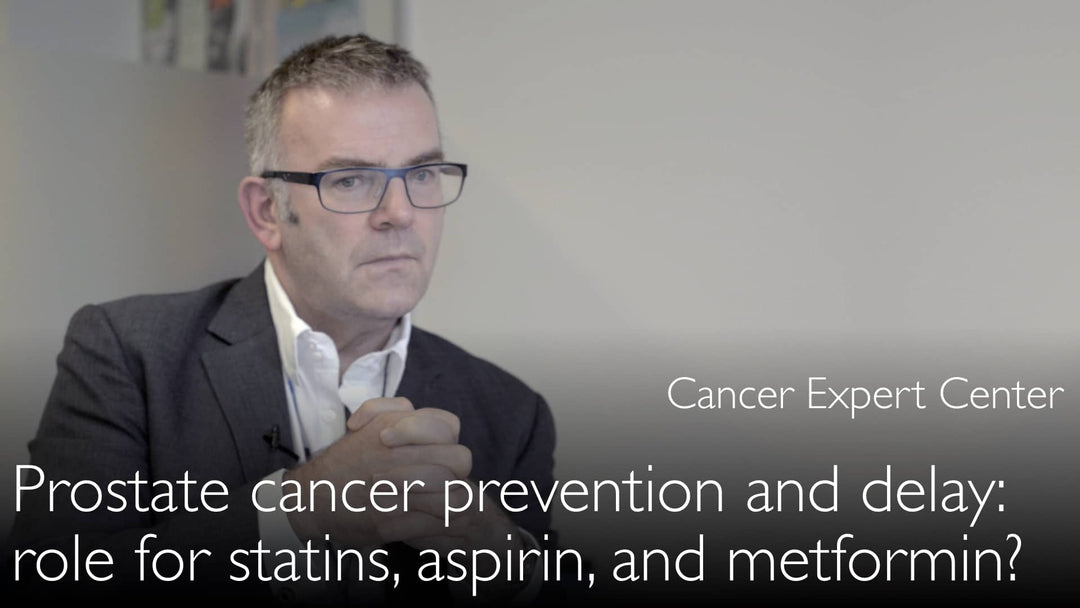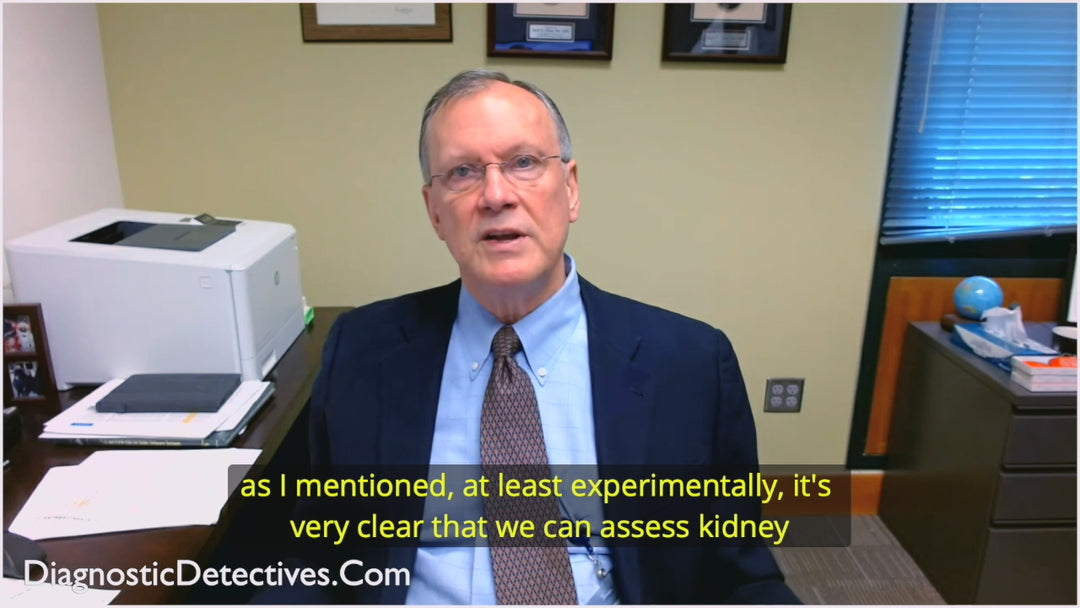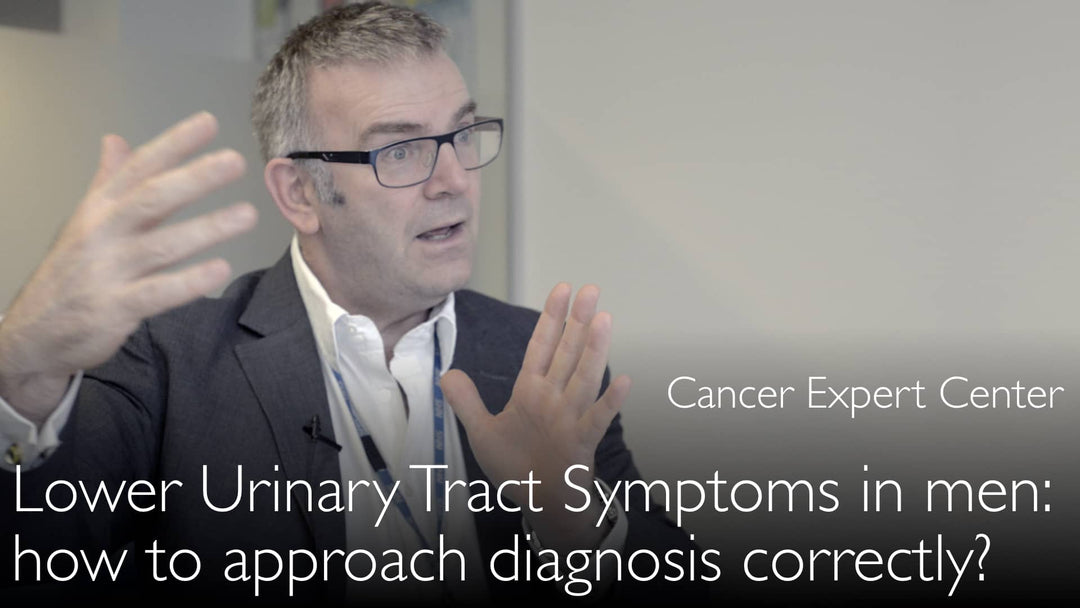Leading expert in urology and prostate cancer, Dr. Mark Emberton, MD, explains the promising SAM strategy for cancer prevention, detailing how statins, aspirin, and metformin may delay prostate cancer progression. He highlights ongoing clinical trials using advanced MRI technology to measure the direct impact of these medications on tumor volume and genetic expression, offering a potential pharmacological approach to complement lifestyle interventions.
Pharmacological Prevention of Prostate Cancer: The SAM Strategy Explained
Jump To Section
- The SAM Strategy Explained
- Beyond Prostate Cancer Prevention
- Metformin in Cancer Prevention Trials
- The Role of Prostate MRI
- Clinical Trial Design with Polypill
- Dietary Interventions vs Chemo-Prevention
- Future of Prostate Cancer Management
The SAM Strategy Explained
The SAM strategy represents a novel approach to pharmacological cancer prevention, combining three widely used medications: Statins, Aspirin, and Metformin. Dr. Mark Emberton, MD, confirms this strategy is of great interest within the oncology community for its potential to proactively combat cancer development. The conversation with Dr. Anton Titov, MD, centers on how these agents, individually and collectively, could alter the natural history of diseases like prostate cancer.
Beyond Prostate Cancer Prevention
Dr. Mark Emberton, MD, notes that the potential benefits of the SAM strategy extend beyond a single cancer type. He points to existing medical literature suggesting these medications may also play a role in the prevention of colorectal cancers. This broad applicability increases the significance of ongoing research into what is often referred to as a Polypill approach, initially proposed as a means to prolong life overall.
Metformin in Cancer Prevention Trials
Metformin, a common diabetes medication, is a particularly interesting agent in cancer prevention. Dr. Mark Emberton, MD, highlights that numerous clinical trials are currently underway to assess its efficacy. These studies include administering metformin to men scheduled for radical prostatectomy and to those already on active surveillance for prostate cancer, with the goal of determining if it can positively change the disease's trajectory.
The Role of Prostate MRI
A critical advancement enabling this research is high-resolution prostate MRI. Dr. Mark Emberton, MD, explains that this technology is a game-changer, as it allows clinicians to observe small changes in prostate cancer volume over time. Instead of waiting for traditional signs of clinical progression, researchers can now use MRI to precisely monitor lesions, providing a more accurate and faster assessment of whether a prevention strategy is working within a year or two.
Clinical Trial Design with Polypill
This new capability facilitates robust clinical trial designs. Dr. Mark Emberton, MD, describes how researchers can randomize patients to receive either a single agent like aspirin or metformin, a combination Polypill, or a placebo. By correlating MRI findings with analysis of prostate biopsy tissue, scientists can also investigate how these medications affect genetic expression within the tumors themselves, offering a deeper understanding of their mechanism of action.
Dietary Interventions vs Chemo-Prevention
Dr. Anton Titov, MD, raises the point that with increasing life expectancy, avoiding cancer may require extreme dietary interventions, such as significant calorie restriction or intermittent fasting. Dr. Emberton agrees, confirming that for many, pharmacological "chemo-prevention" with agents like statins, aspirin, and metformin could be a more practical strategy to avoid developing multiple cancers throughout a longer lifespan.
Future of Prostate Cancer Management
The work discussed by Dr. Mark Emberton, MD, points toward a future where prostate cancer management is more proactive and personalized. The integration of preventive pharmacology with advanced diagnostic imaging like MRI could fundamentally shift the paradigm from treating advanced disease to preventing its progression altogether. This approach holds the promise of improving survival outcomes and quality of life for men at risk.
Full Transcript
Dr. Anton Titov, MD: Can statins, aspirin, and metformin help to prevent prostate cancer? Can a polypill delay cancer progression? A leading cancer expert explains pharmacological prevention of prostate cancer.
Dr. Mark Emberton, MD: Yes! Statins, aspirin, and metformin are not just for prostate cancer prevention, but also for colorectal cancers.
Dr. Anton Titov, MD: What can you say about using those medicines potentially in primary cancer prevention?
Dr. Mark Emberton, MD: I think statins, aspirin, and metformin are of great interest for cancer prevention. These are the constituents of the polypill. The polypill was proposed to prolong all our lives. I think there's probably something in all those agents.
Can we show that individually they will affect cancer survival and outcome? I think that is another issue. Metformin is a really interesting one. There are many clinical trials being done with metformin at present. We have to see if we can change the natural history of prostate cancer.
Men prior to radical prostatectomy, for instance, are being given metformin. Men on active surveillance for prostate cancer have been given metformin. We are involved in the trial of active surveillance and aspirin. We have to see if we can reduce prostate cancer progression rates.
All stories lead back to MRI. I think with prostate MRI, we're going for the first time to have the opportunity to assess statins, aspirin, and metformin. Because we've got a test that can show us small changes in prostate cancer volume.
In other words, instead of waiting for prostate cancer to progress. There are lots of reasons why prostate cancer might progress. There are lots of reasons why people might die. We can look at fewer men with prostate cancer, but watch lesions over time.
We can randomize prostate cancer patients to aspirin, metformin, or statins. Or we can give a polypill approach. We can compare with placebo. I think we will be able to define over maybe a period of a year or two, prostate cancer progressors from non-progressors.
Also, we can look at the prostate biopsy tissue to see how these pills are affecting the genetic expression within the tumors.
Dr. Anton Titov, MD: Of course, it's a controversial topic. But one theory says that people are living significantly longer. So you should do some extreme dietary intervention, like calorie restriction, alternate-day diet, or intermittent fasting at an extreme level.
Otherwise, it's very hard to avoid chemo-prevention and chemo-intervention with medicines: statins, aspirin, and metformin. So you can avoid getting multiple cancers.
Dr. Mark Emberton, MD: Correct, correct!







